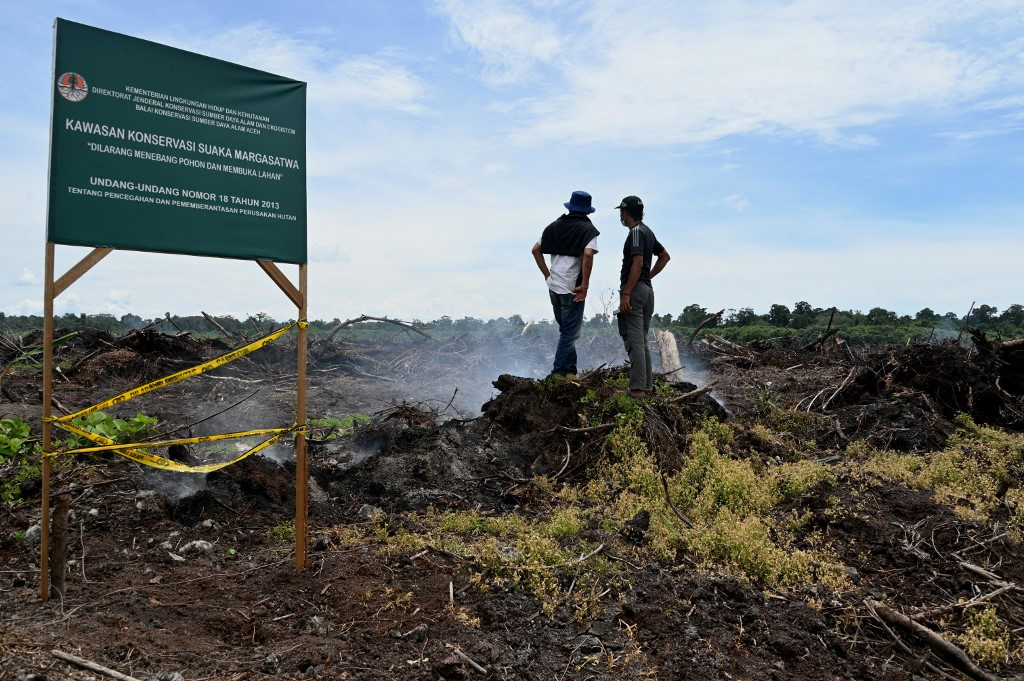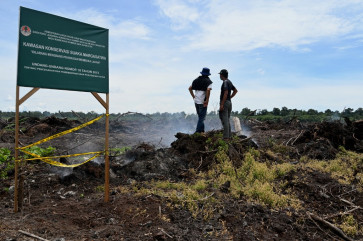Popular Reads
Top Results
Can't find what you're looking for?
View all search resultsPopular Reads
Top Results
Can't find what you're looking for?
View all search resultsOil palm plantation licensing moratorium not a solution to deforestation
A blanket moratorium is harmful to the interests of the country, the world’s largest palm oil producer.
Change text size
Gift Premium Articles
to Anyone
T
he World Bank’s latest economic report on Indonesia, which was released on Dec. 16, chose high growth and a low-carbon economy as its main themes.
The 56-page analysis reminded the government that a moratorium on the issuance of new licenses for the clearing of primary forests and peatland and mandatory certification for sustainable forest management and sustainable palm oil should be included in the programs to reduce carbon emissions from forest and land use.
Indonesia has committed to reducing its greenhouse gas emissions by 29 percent on its own by 2030 or by up to 41 percent if it receives international assistance. The forestry and land sectors are to be the two main contributors to the emissions reduction, with an estimated contribution of between 17.2 percent and 38 percent to the reduction by 2030.
Commitments for emissions reductions from forest and land use include plans to restore 2 million hectare of peatland and 12 million ha of other degraded forest land by 2030. As outlined in Indonesia’s long-term strategy on low carbon emission, achieving net-zero emissions in forest and land use will require substantial decreases in peat-related emissions from deforestation, as well as an increase in carbon sequestration, afforestation and reforestation
But the moratorium on new palm oil plantations, which was based on Presidential Instruction No.8/2018, ended last September without any official explanations on whether it would be renewed, extended or stopped altogether.
Several green and environmental NGOs have also urged the government to renew the moratorium, which required government agencies to stop granting new licenses for palm oil concessions and to review existing ones. They have also asked why the government has not issued a report on the outcomes of the three-year moratorium.
But many officials and analysts have assumed that since sustainable forest and palm oil management regulations have been stipulated in the Job Creation Law and its implementing regulations, a moratorium is no longer needed.



















